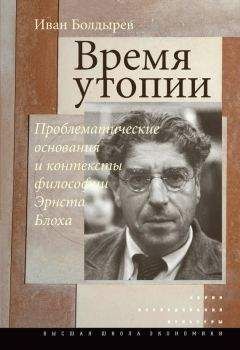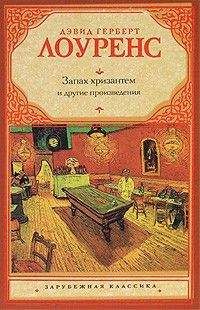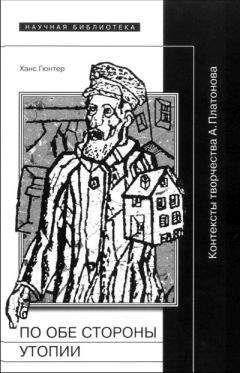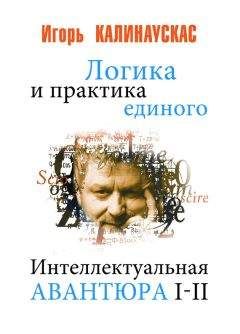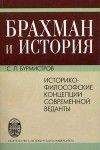Дэвид Лоуренс - Английский с Дэвидом Г. Лоуренсом. Тень в розовом саду / D. H. Lawrence. The Shadow in the Rose Garden
“I guessed that much,” she said. “Eliza’s dear Alfred.” She laughed. “How do you say it in French? Eliza?”
I told her, and she repeated the name with great contempt – Elise.
“Go on (продолжайте),” she said. “You’re not reading (вы не читаете).”
So I began – “ ‘I have been thinking of you sometimes – have you been thinking of me (и я начал: я думаю о тебе иногда… ты думаешь обо мне)?’”
“Of several others as well, beside her, I’ll wager (и о нескольких других тоже, помимо нее, держу пари; to wager – держать пари, биться об заклад; wager – пари; ставка),” said Mrs. Goyte.
“Probably not,” said I, and continued (вероятно, нет, – сказал я и продолжал). “ ‘A dear little baby was born here a week ago (дорогой малыш родился здесь неделю назад). Ah, can I tell you my feelings when I take my darling little brother into my arms (ах, могу ли я рассказать тебе о моих чувствах, когда я беру на руки моего милого младшего брата…) —’ ”
“I’ll bet it’s his,” cried Mrs. Goyte (я уверена, это его /ребенок/! – воскликнула миссис Гойт; bet – пари; to bet – держать пари, биться об заклад; быть уверенным).
“No,” I said. “It’s her mother’s (нет, это ее матери).”
“Don’t you believe it,” she cried (как бы нет так: «не верьте этому»! – воскликнула она). “It’s a blind (это для отвода глаз; blind – штора, занавеска; предлог, отговорка; обман). You mark, it’s her own right enough – and his (уж поверьте, это ее собственный, конечно, – и его; to mark – ставить метку; отмечать; замечать, запоминать; right enough – /разг./ конечно, несомненно).”
“No,” I said. “It’s her mother’s. ‘He has sweet smiling eyes, but not like your beautiful English eyes (у него прелестные улыбчивые глаза, но не такие, как твои прекрасные английские…; sweet – сладкий; приятный, милый, очаровательный /о внешности/) —’ ”
“Go on,” she said. “You’re not reading.”
So I began – “’I have been thinking of you sometimes – have you been thinking of me?’”
“Of several others as well, beside her, I’ll wager,” said Mrs. Goyte.
“Probably not,” said I, and continued. “’A dear little baby was born here a week ago. Ah, can I tell you my feelings when I take my darling little brother into my arms —’”
“I’ll bet it’s his,” cried Mrs. Goyte.
“No,” I said. “It’s her mother’s.”
“Don’t you believe it,” she cried. “It’s a blind. You mark, it’s her own right enough – and his.”
“No,” I said. “It’s her mother’s. ’He has sweet smiling eyes, but not like your beautiful English eyes —’”
She suddenly struck her hand on her skirt with a wild motion (вдруг она хлопнула себя по юбке резким движением; wild – дикий; бурный, безудержный), and bent down, doubled with laughter (и наклонилась, согнувшись от смеха; to double – удваивать/ся/; сгибать/ся/, складывать/ся/ вдвое). Then she rose and covered her face with her hand (потом встала и закрыла лицо рукой; to cover – покрывать, накрывать, прикрывать).
“I’m forced to laugh at the beautiful English eyes (не могу не смеяться над прекрасными английскими глазами; to force – заставлять, принуждать; force – сила; воздействие; принуждение),” she said.
“Aren’t his eyes beautiful?” I asked (разве его глаза не прекрасные? – спросил я).
“Oh yes – very (о да, очень)! Go on (продолжайте)! – Joey dear, dee-urr Joey!” – this to the peacock (Джоуи, милый, ми-и-илый Джоуи! – это /уже/ павлину).
“– Er – ‘We miss you very much (э-э… мы очень по тебе скучаем). We all miss you (мы все по тебе скучаем). We wish you were here to see the darling baby (нам хотелось бы, чтобы ты был здесь и видел чудного малыша). Ah, Alfred, how happy we were when you stayed with us (ах, Альфред, как счастливы мы были, когда ты гостил у нас; to stay – оставаться; останавливаться, гостить). We all loved you so much (мы все так сильно тебя любили). My mother will call the baby Alfred so that we shall never forget you (мама назовет малыша Альфредом, чтобы мы никогда тебя не забывали…) —’ ”
She suddenly struck her hand on her skirt with a wild motion, and bent down, doubled with laughter. Then she rose and covered her face with her hand.
“I’m forced to laugh at the beautiful English eyes,” she said.
“Aren’t his eyes beautiful?” I asked.
“Oh yes – very! Go on! – Joey dear, dee-urr Joey!” – this to the peacock.
“– Er – ’We miss you very much. We all miss you. We wish you were here to see the darling baby. Ah, Alfred, how happy we were when you stayed with us. We all loved you so much. My mother will call the baby Alfred so that we shall never forget you —’”
“Of course it’s his right enough,” cried Mrs. Goyte (разумеется, это его /ребенок/, непременно, – воскликнула миссис Гойт).
“No,” I said. “It’s the mother’s (нет, ее матери). Er – ‘My mother is very well (м-м… моя мама /чувствует себя/ очень хорошо). My father came home yesterday – from Lille (папа приехал вчера домой – из Лилля). He is delighted with his son, my little brother (он восхищен своим маленьким сыном, моим младшим братом; to delight – радовать, восхищать; наслаждаться; радоваться), and wishes to have him named after you (и хочет, чтобы его назвали в твою честь: «после тебя»), because you were so good to us all in that terrible time, which I shall never forget (потому что ты был ко всем нам так добр в то ужасное время, которое я никогда не забуду). I must weep now when I think of it (я плачу теперь, когда вспоминаю его). Well, you are far away in England, and perhaps I shall never see you again (что ж, ты далеко, в Англии, и, наверное, я никогда больше тебя не увижу). How did you find your dear mother and father (как поживали твои дорогие родители, когда ты приехал: «какими ты застал своих дорогих маму и папу»; to find – находить, обнаруживать; заставать)? I am so happy that your leg is better, and that you can nearly walk (я так счастлива, что твоя нога лучше, и что ты почти /уже/ можешь ходить…) —’ ”
“How did he find his dear wife!” cried Mrs. Goyte (как поживала его дорогая жена! – воскликнула миссис Гайт). “He never told her that he had one (он ни разу ей не сказал, что у него есть жена; one – заменяет уже употребленное слово). Think of taking the poor girl in like that (подумать только – так обманывать бедную девушку; to take in – принимать /гостя/; обманывать, дурачить)!”
“Of course it’s his right enough,” cried Mrs. Goyte.
“No,” I said. “It’s the mother’s. Er – ’My mother is very well. My father came home yesterday – from Lille. He is delighted with his son, my little brother, and wishes to have him named after you, because you were so good to us all in that terrible time, which I shall never forget. I must weep now when I think of it. Well, you are far away in England, and perhaps I shall never see you again. How did you find your dear mother and father? I am so happy that your leg is better, and that you can nearly walk —’”
“How did he find his dear wife!” cried Mrs. Goyte. “He never told her that he had one. Think of taking the poor girl in like that!”
“ ‘We are so pleased when you write to us (мы так рады, когда ты нам пишешь; to please – радовать, доставлять удовольствие; получать удовольствие). Yet now you are in England you will forget the family you served so well(однако теперь, когда ты в Англии, ты забудешь семью, к которой был так добр…; to serve – служить; быть полезным, помогать; /разг./ обходиться /с кем-л./) – ’ ”
“A bit too well – eh, Joey!” cried the wife (чуть-чуть слишком добр, а, Джоуи! – воскликнула жена).
“ ‘If it had not been for you we should not be alive now (если бы не ты, нас бы теперь не было в живых; alive – живой, в живых), to grieve and to rejoice in this life, that is so hard for us (/мы бы не могли/ горевать и радоваться в этой жизни, что так тяжела для нас). But we have recovered some of our losses (но мы возместили некоторые наши убытки; to recover – получать обратно, возвращать; наверстывать, возмещать; /юр./ добиваться возмещения /убытков/; loss – потеря, лишение; убыток; to recover one`s losses – возместить, вернуть убытки), and no longer feel the burden of poverty (и больше не ощущаем бремени бедности). The little Alfred is a great comforter to me (маленький Альфред – великий утешитель для меня). I hold him to my breast and think of the big, good Alfred (я прижимаю его к груди и думаю о большом, славном Альфреде), and I weep to think that those times of suffering were perhaps the times of a great happiness that is gone for ever (и плачу при мысли, что те времена страданий были, возможно, временами огромного счастья, которое ушло навсегда).’”
“’We are so pleased when you write to us. Yet now you are in England you will forget the family you served so well —’”
“A bit too well – eh, Joey!” cried the wife.
“’If it had not been for you we should not be alive now, to grieve and to rejoice in this life, that is so hard for us. But we have recovered some of our losses, and no longer feel the burden of poverty. The little Alfred is a great comforter to me. I hold him to my breast and think of the big, good Alfred, and I weep to think that those times of suffering were perhaps the times of a great happiness that is gone for ever.’”
“Oh, but isn’t it a shame to take a poor girl in like that!” cried Mrs. Goyte (о, ну разве не стыдно так обманывать бедную девушку! – воскликнула миссис Гойт). “Never to let on that he was married, and raise her hopes – I call it beastly, I do (ни разу не обмолвиться, что женат, и вселять в нее надежды… я называю это свинством, вот как; to let on – выдавать; раскрывать /секрет, факты/; to raise – поднимать; возбуждать, вызывать).”
“You don’t know (вы не знаете),” I said. “You know how anxious women are to fall in love, wife or no wife (вы знаете, как мечтают женщины влюбиться, есть жена или нет жены; anxious – беспокоящийся; тревожный; стремящийся /к чему-л./, сильно желающий /чего-л., сделать что-л./). How could he help it, if she was determined to fall in love with him (как он мог этому помешать, если она /твердо/ решила влюбиться в него; to help – помогать; избегать, удерживаться; предотвращать)?”
“He could have helped it if he’d wanted to (мог бы, если бы захотел).”
